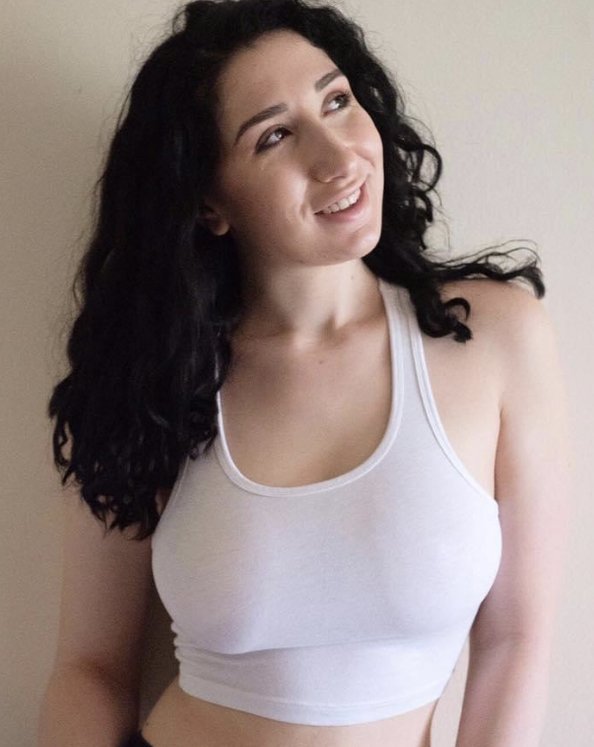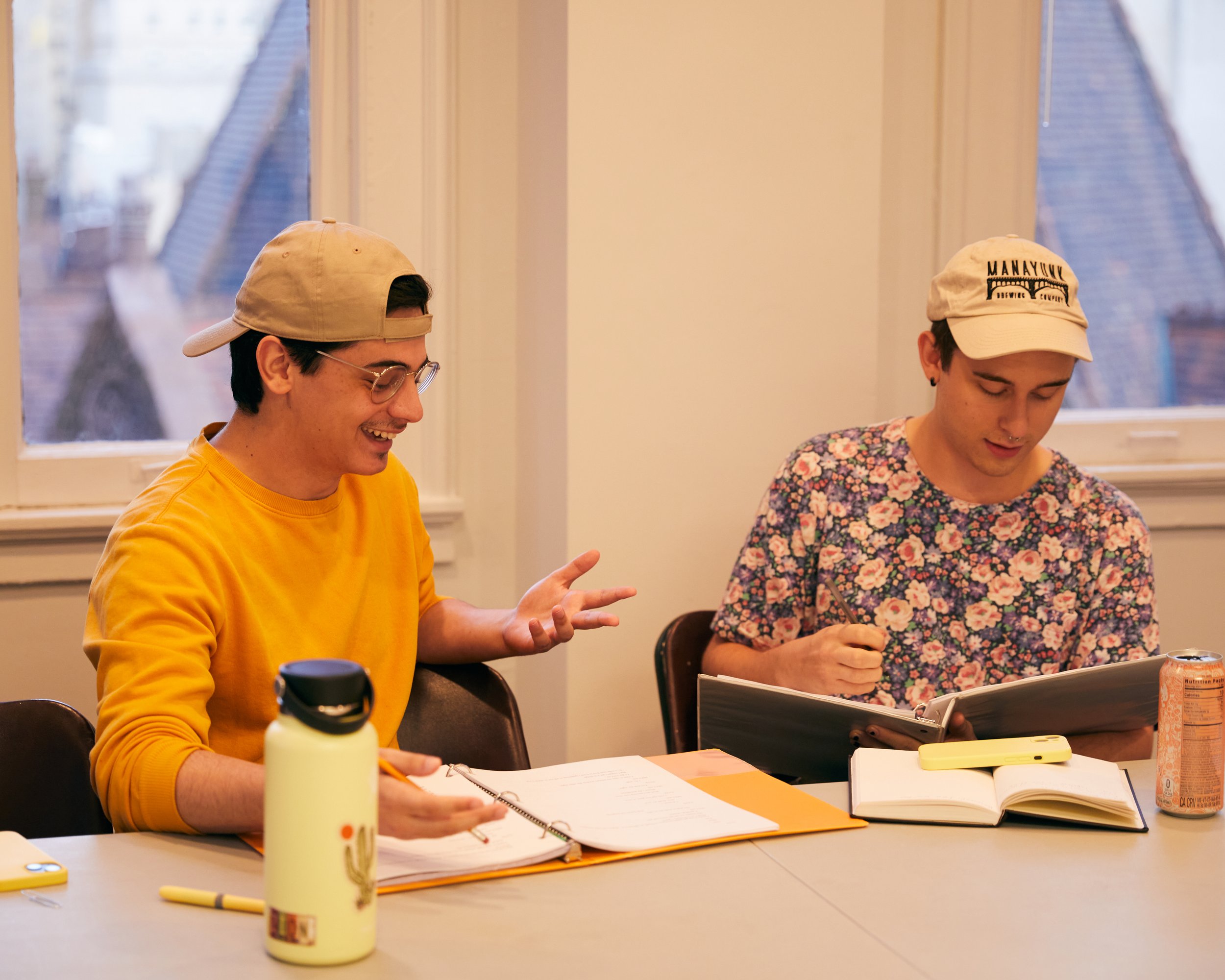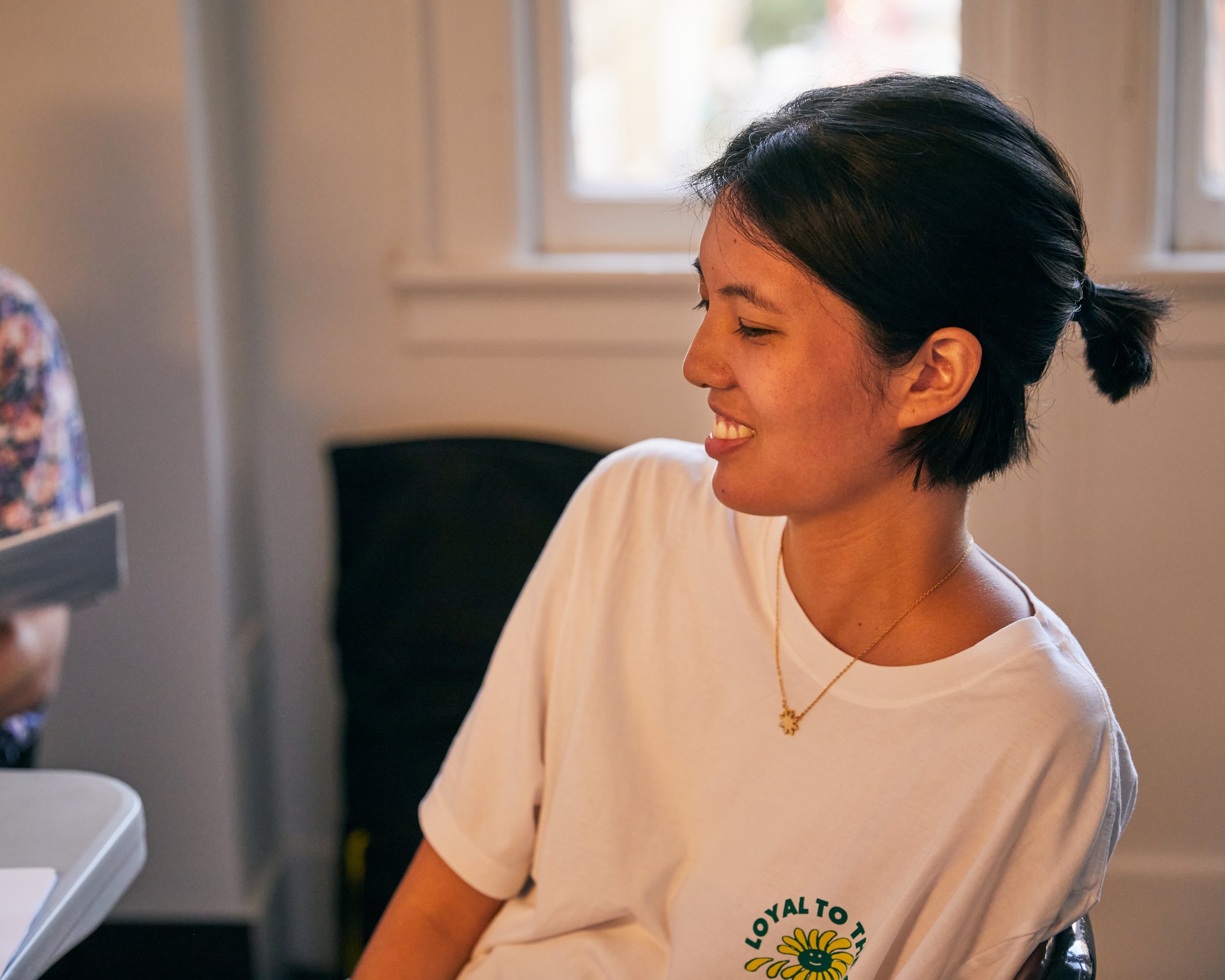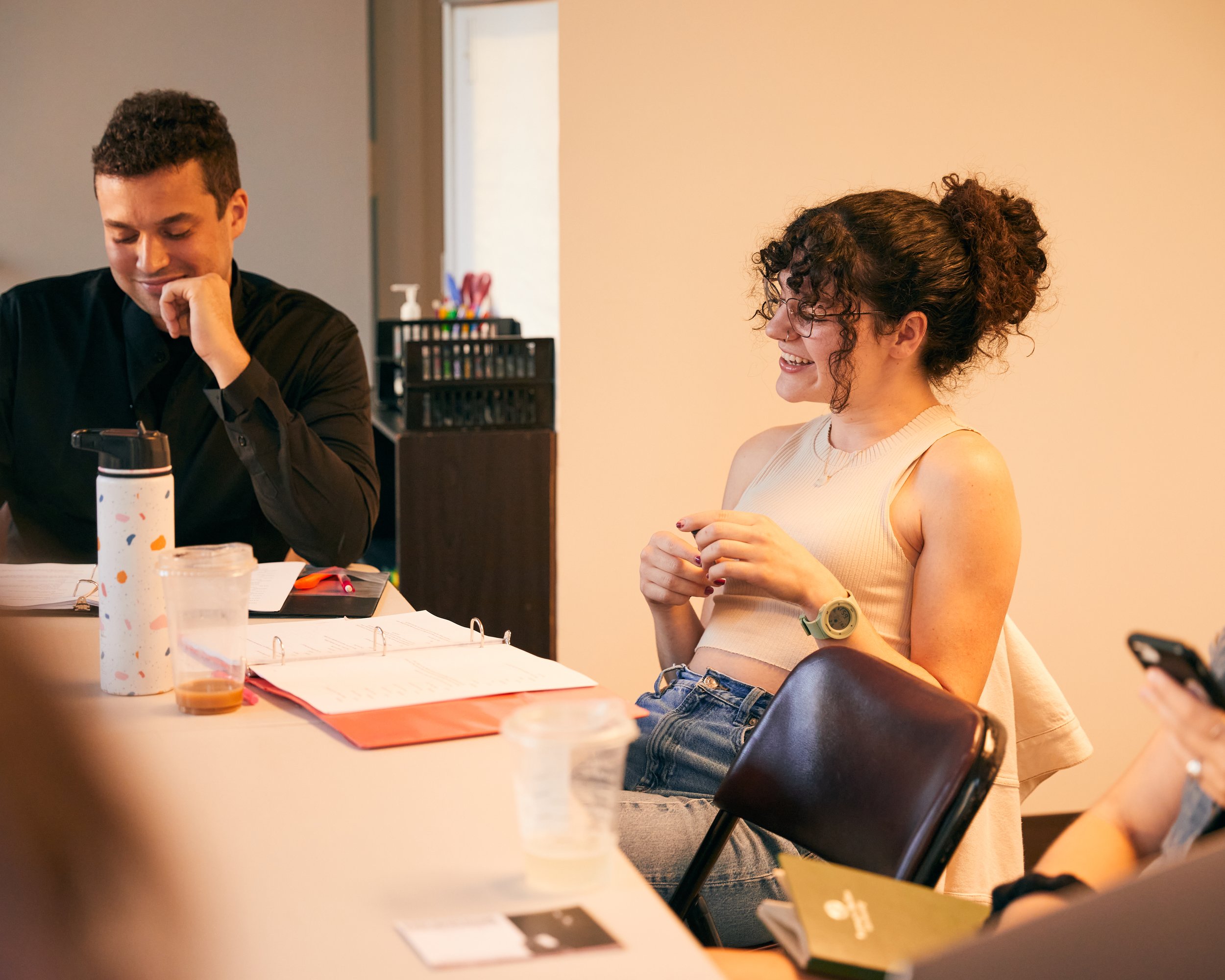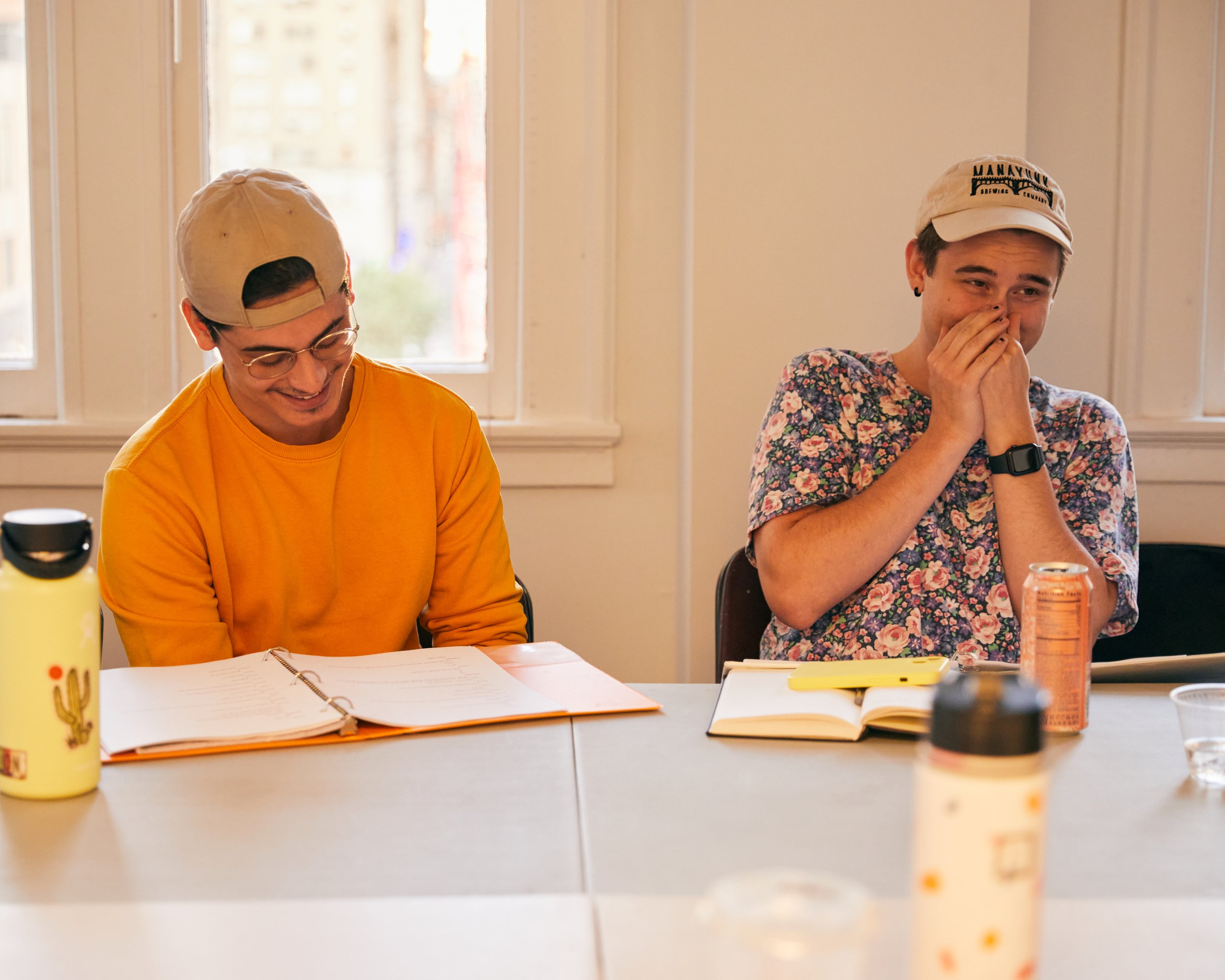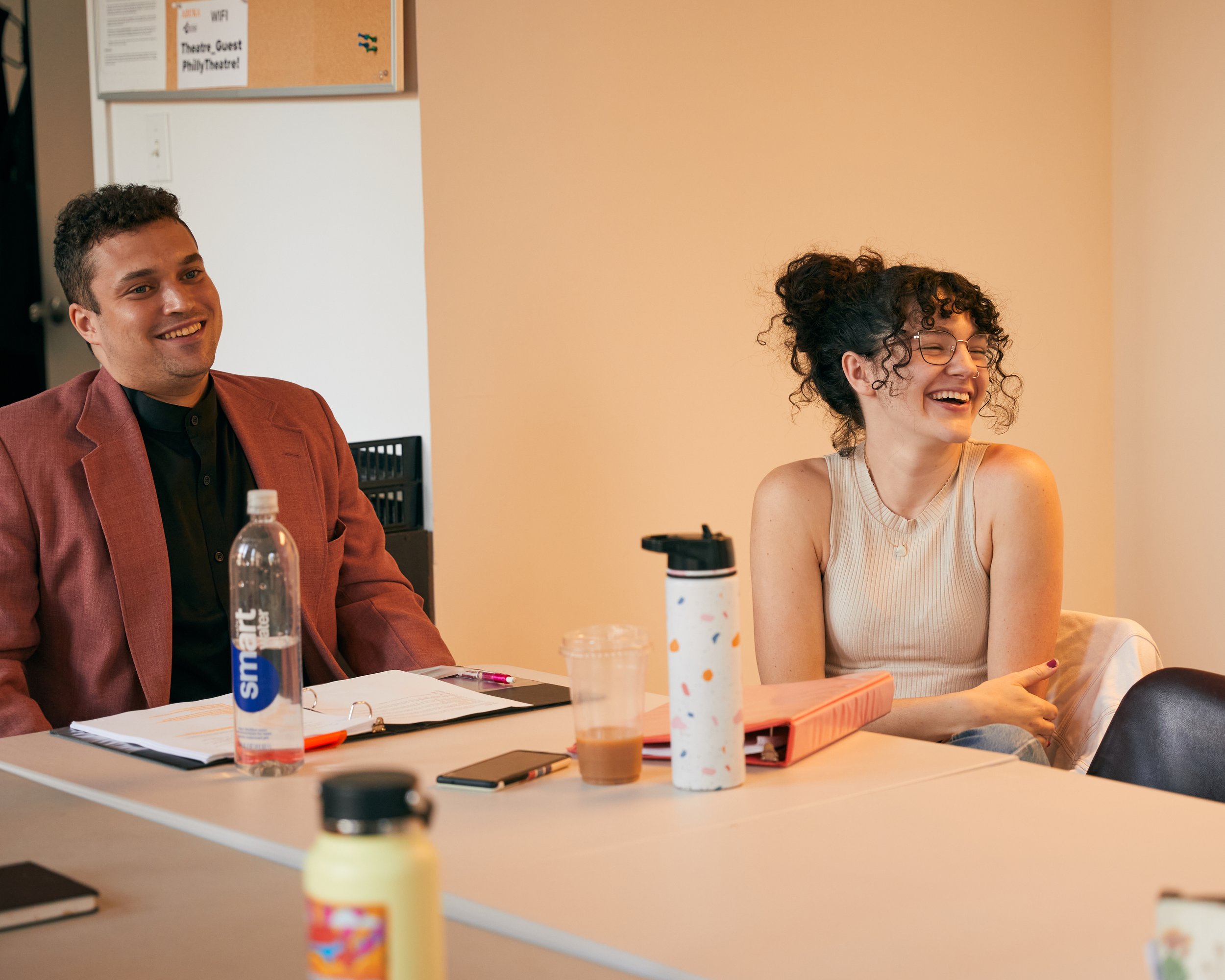

Written by
Jonathan V. Edmondson
Directed by
Kyle Metzger
October 6th-16th 2022
Christ Church Neighborhood House
20 N American Street
Philadelphia, PA 19106
Synopsis
Declan Barkin is missing. When his brother Adam shows up in Denver to investigate the disappearance, he connects with Nate, who swears he barely knows Declan… but when a perplexing building manager, a curious roommate, and a bird on the fire escape interfere, Nate finds himself face-to-face with the very thing he has been trying to avoid. the pigeon. examines the truths we hide, the lies we craft, and the world we wish was right outside our window.
Content Warning: Our show contains use of profane language, as well as references to homophobia, death of a family member, alcohol, and mild sexual activity. Recommended for audiences age 16+.
Run time: Approximately 90 minutes with no intermission.
Production Photos.
our Cast.





Our production staff.











